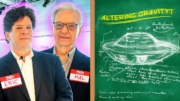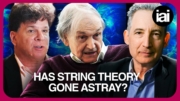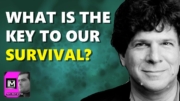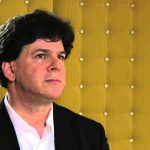This essay was originally published in 2013 on https://www.quora.com
[Note added in response to comment: I am responding here to Feynman’s suggestion in the second half of the quote that the *only* way to make progress is to encourage career risk. My objection is to the continuing wasteful and dangerous conflation of personal intellectual risk and personal financial and career risk on the part of the researcher.]
Feynman’s quote was absolutely wrong here about money and physics in my opinion. The more careful statement is that, so far, no one has found a reliable funding model that efficiently encourages the crossing of intellectual adaptive valleys in theoretical physics. Yet that does not mean we should focus our energies on getting individual researchers to assume an ever larger amount of career risk while hinting that the field may not need additional funding.
The problem in fundamental physics for many years has been that general relativity and the standard model appear to represent intellectual local maxima with respect to theoretical coherence. As one moves away from these constructs to explore new ideas, she or he suffers the penalty that the prisoner on any local max suffers when trying to escape across an intellectual adaptive valley.
There are however oases of fitness in the depths of the adaptive valley fed by springs of money and intellectual camaraderie. These may be thought of as local maxima which are even lower than the standard model and general relativity. These oases are often well populated and have names like ‘Super Symmetry’, ‘Extended Objects’, ‘Loop Quantum Gravity’, ‘Higher Dimensions’, ‘Cellular Automata’ and the like and they are used as base-camps for small explorations around the oases. They generally suffer from well known problems but provide some advantage that is not present in the status quo.
This oasis system is one reason why theoretical physicists often discuss ‘fashion’, ‘fad’ and ‘herd like behavior’. What they are really talking about is the strategy of trying to explore the landscape of possibilities while huddling next to fellow oasis residents for camaraderie and security. Because we select for physicists first on the basis of limber intellect through intellectual gymnastics and only later on the bases of originality and character, we find the oases settlement strategy to be the dominant modality.
But if you move off the oases, you find something very odd. The landscape is quite barren, but one occasionally stumbles on a lone traveler out in the adaptive valley pursuing some path known only to him or her. I have been exploring off and on out here since the anomaly cancellation in 1984 and have admittedly seen very few. Of the few that I have seen, most are very weak from lack of nourishment (few honors, no permanent source of funding), old age (they did something well respected in their distant youth which gave them freedom to explore later in life) or lack of technical chops (when they are too often forced off the oases due to lack of ability to compete.) But some are quite good and bear scrutiny. They split their time between pursuing their program and trying to find some scheme to support their expedition.
Sometimes, I try to check back in with one of them from time to time and often find she/he is no longer in the field or is at the end of his life. I think then about how much time that person was forced to divert into thinking about money and support from colleagues and what a waste of time that was.
What could have helped these intrepid travelers? There is an important but profane concept:
which needs to enter the genteel world of theoretical physics so that we can discuss Feynman’s claim. He was always self-funding in his true valley crossings as he could fall back on his calculation and encyclopedic knowledge. And yet, as good as he was, it appears from accounts that he was acutely conscious of the fact that he never crossed the adaptive valley to discover a new fundamental physical law.
So, while they are few and far between, there are true explorers out here and funding, love, and support could be the difference between being trapped on the standard model for another 2 generations and immediate progress. We could take a complete census of everyone with an individual research program, score those programs to eliminate cranks, and fund every last explorer of character for a tiny fraction of what it takes to keep the oases supplied with spring water.
Dropping money (and professional legitimacy) on the true travelers can make a difference that supplying the oases cannot.
This suggestion naturally causes outrage on the Oases. This is one reason why it should be pursued. Vigorously. Unapologeticaly, and with great panache.







